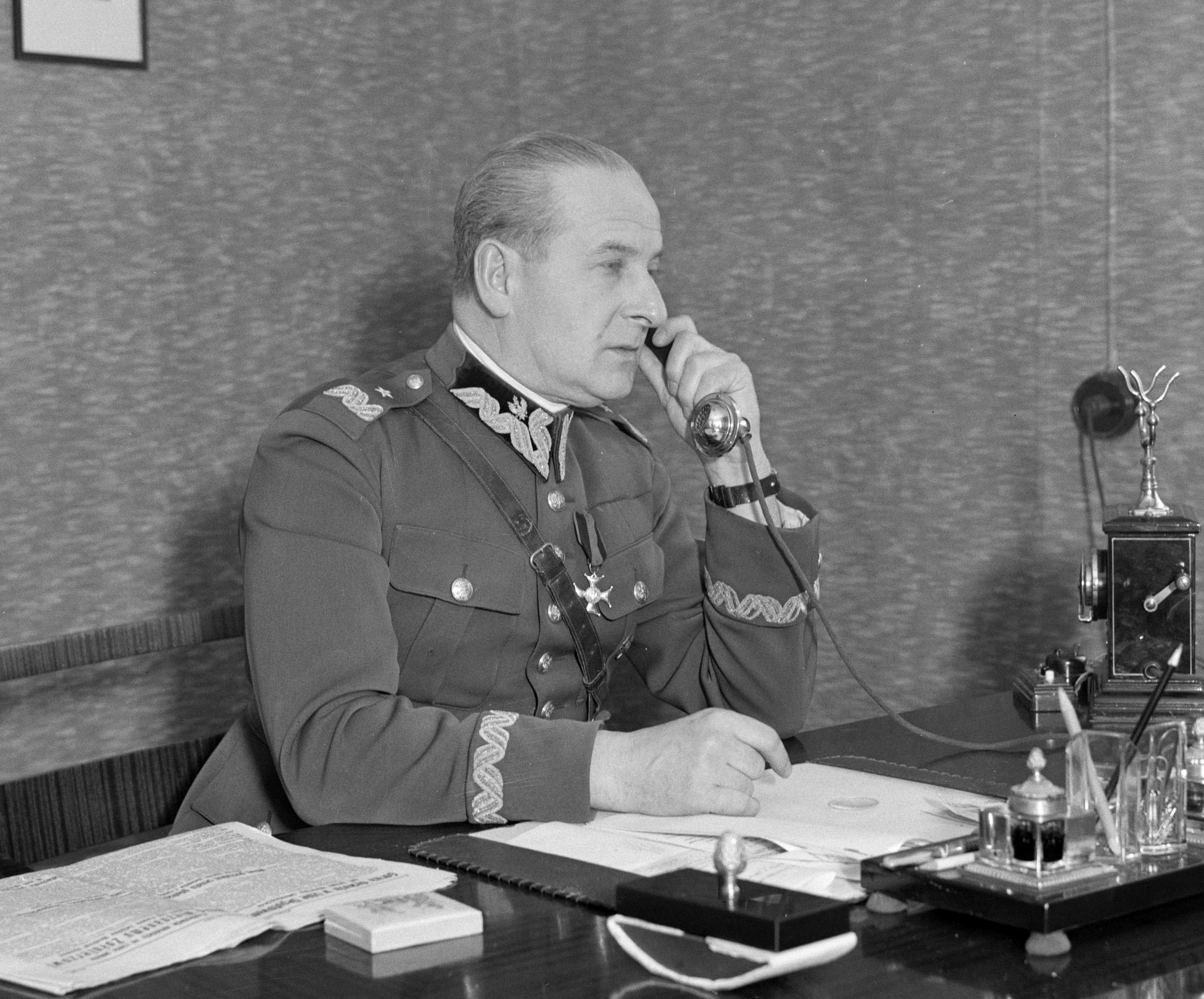|
Ziemiańska
Ziemiańska or Mała Ziemiańska (the name coined after the term ''ziemianin'', meaning member of Polish landed gentry) was a coffeehouse in Warsaw. It was notable as a meeting place of many of Poland's most prominent artists of the inter-war period. The venture was founded in 1918 at 12, Mazowiecka Street in Warsaw's city centre. It was officially opened on April 14 of that year and its original owners were Jan Skępski and Karol Albrecht, two prominent pâtissier masters. Initially the cafe consisted only of a small room with several tables, later a gallery above was added with additional tables. The cafe lay roughly halfways between the Warsaw University, the Filharmony, Zachęta Art Gallery and many notable cultural facilities. Because of that, it started to be frequented by artists of all sorts. Among the most prominent to be frequent guests there were the Skamandrites, including poets Julian Tuwim, Antoni Słonimski, Jan Lechoń, Jarosław Iwaszkiewicz and Kazimierz Wi ... [...More Info...] [...Related Items...] OR: [Wikipedia] [Google] [Baidu] |
Bolesław Wieniawa-Długoszowski
Bolesław Ignacy Florian Wieniawa-Długoszowski (22 July 1881 – 1 July 1942) was a Polish general, adjutant to Chief of State Józef Piłsudski, politician, freemason, diplomat, poet, artist and formally for one day the President of the Republic of Poland. He was one of the generation that fought for and saw the rebirth of an independent Poland on 11 November 1918 (National Independence Day), only to see that independence lost again after the 1939 division of Poland between Nazi Germany and the Soviet Union pursuant to the Molotov–Ribbentrop Pact. Before World War I Bolesław Wieniawa-Długoszowski was born 22 July 1881 on his family's estate in Maksymówka near Stanisławów in Galicia, then part of the Austro-Hungarian Empire, (now Ivano-Frankivsk in the Ukraine), the son of Bolesław Długoszowski (a railway engineer, who built the railway from Tarnów to Krynica-Zdrój via Bobowa) and Józefina, '' née'' Struszkiewicz. He had an elder brother Kazimierz and two si ... [...More Info...] [...Related Items...] OR: [Wikipedia] [Google] [Baidu] |
Franciszek Fiszer
Franciszek Fiszer (better known as Franc Fiszer; March 25, 1860 – April 9, 1937) was a Polish bon-vivant, gourmand, erudite and philosopher, a friend of the most notable writers and philosophers of contemporary Warsaw and one of Warsaw's semi-legendary people. He is best remembered for a large number of anecdotes, jokes and sayings coined by him and about him. Biography Franciszek Józef Marian Fiszer was born in 1860 in the Ławy manor near Ostrołęka, to Teresa née Glinczanka and Józef Fiszer. His father was from among the German nobility, polonised in the 18th century and a distant relative of General Stanisław Fiszer, while his mother was a member of the Polish gentry and owner of the said manor and village. Very little is known of Fiszer's childhood apart from the fact that he was a late child (both of his parents being over 40 at his birth) and that he became an orphan relatively soon. In the 1880s Fiszer moved to Warsaw, where he started spending most of his tim ... [...More Info...] [...Related Items...] OR: [Wikipedia] [Google] [Baidu] |
Józef Rapacki - W Kawiarni - Ziemiańska
Joseph is a common male given name, derived from the Hebrew Yosef (יוֹסֵף). "Joseph" is used, along with "Josef", mostly in English, French and partially German languages. This spelling is also found as a variant in the languages of the modern-day Nordic countries. In Portuguese and Spanish, the name is "José". In Arabic, including in the Quran, the name is spelled ''Yūsuf''. In Persian, the name is "Yousef". The name has enjoyed significant popularity in its many forms in numerous countries, and ''Joseph'' was one of the two names, along with ''Robert'', to have remained in the top 10 boys' names list in the US from 1925 to 1972. It is especially common in contemporary Israel, as either "Yossi" or "Yossef", and in Italy, where the name "Giuseppe" was the most common male name in the 20th century. In the first century CE, Joseph was the second most popular male name for Palestine Jews. In the Book of Genesis Joseph is Jacob's eleventh son and Rachel's first son, and ... [...More Info...] [...Related Items...] OR: [Wikipedia] [Google] [Baidu] |

